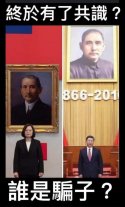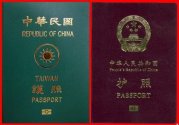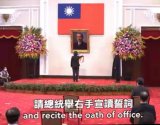Mr T
Senior Member
China's objective is unification. If it were more accurately described as no formal Taiwanese independence, the status quo would make sense. But passing up an opportunity to force Taiwan to unify would be odd if those conditions exist.Was it not clear? I said “not necessary (to squeeze)”.
That said, I recognise you also say you don't support a military intervention to force the issue. As far as I understand it most people on this forum would support that if Taiwan did not agree to unify. I understand now you don't share that view.
No, I understand what you're saying. I simply disagree.You are misinterpreting what I am saying.
First, 28 + 4 = 32%. Of course "hardcore Chinese identity" is a subjective label. If you want me to be more precise, then 25 - 30% always identify as Chinese. Taiwanese and Chinese is still Chinese. I've been seeing these reports for the last 20 years and the number has been pretty stable.
Here's an article from 2016.
First, the chart shows a decline in the mixed Taiwanese-Chinese identity, not a consistent line.
Second, the article pointed out the following.
"Among those who are 29 or younger, born after martial law ended in 1987, 78 percent hold an exclusively Taiwanese identity — as do nearly 70 percent of . If this trend continues, a solely Taiwanese identity will prevail as residents’ consensus."
Here's another poll from National Chengchi University. You can see the trend there as well.
I would also argue that people who have a "hardcore" identity are more likely to identify exclusively as that thing than mix it in with other identities. Otherwise their identity is not hardcore.
It's China that wants to change the status quo. The Taiwanese government is not planning to revise the ROC constitution to make it about an independent Taiwan. The DPP's position is that Taiwan is an independent state named the ROC (if I remember correctly).Second, I am not talking about civil war, riots or calls for reunification. You made that logical leap. The point of the matter is whether a big chunk of the population wants any changes to the status quo. That percent of the population will likely be staunchly opposed. I'm not even going to bother including a link for surveys to show that even a bigger percentage are fine with the status quo, because they are everywhere.
I'm trying to understand why the economic balance between China and Taiwan means that unification will happen within a foreseeable period (I'm assuming by 2049 as that's Xi's deadline for China's renewal). China doesn't trade with Taiwan out of charity, it buys stuff it wants. I don't think you believe Beijing will offer Taiwanese huge annual fiscal transfers to get their support. Even if wages in Taiwan are not that high (and they're not that low otherwise Taiwanese companies in China would be bringing manufacturing back to take advantage of that), unification does not resolve that issue.Are you going to argue that Taiwan extracts no benefits from that?



